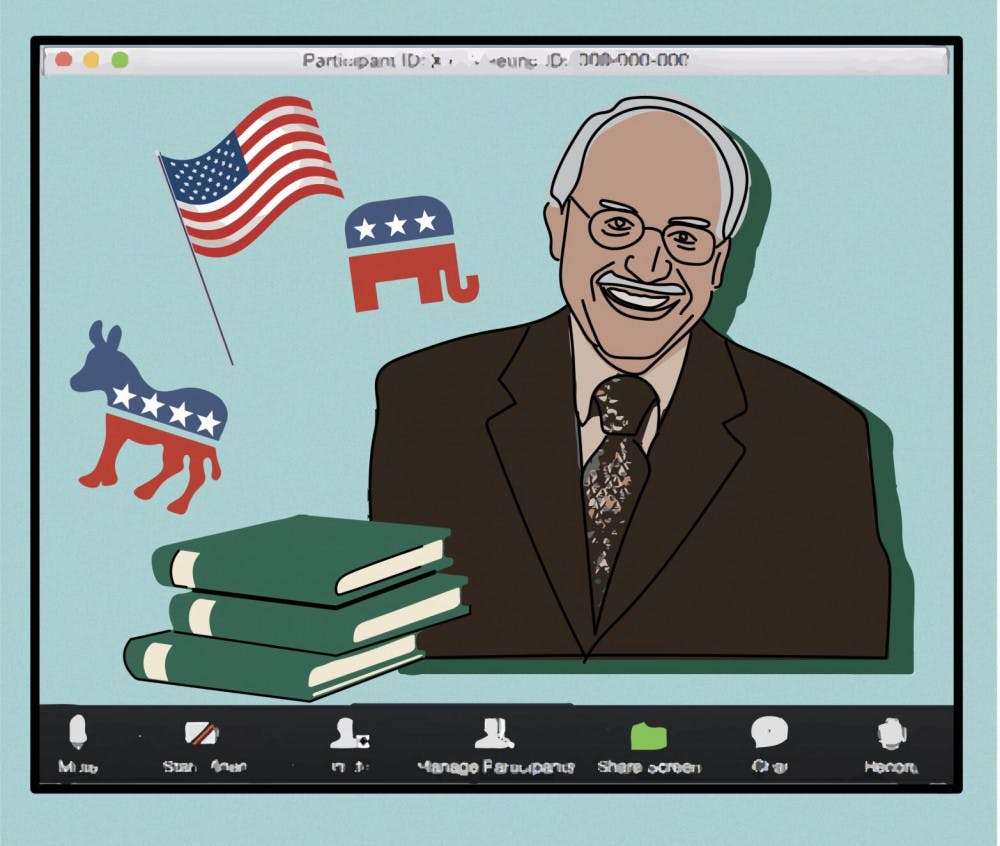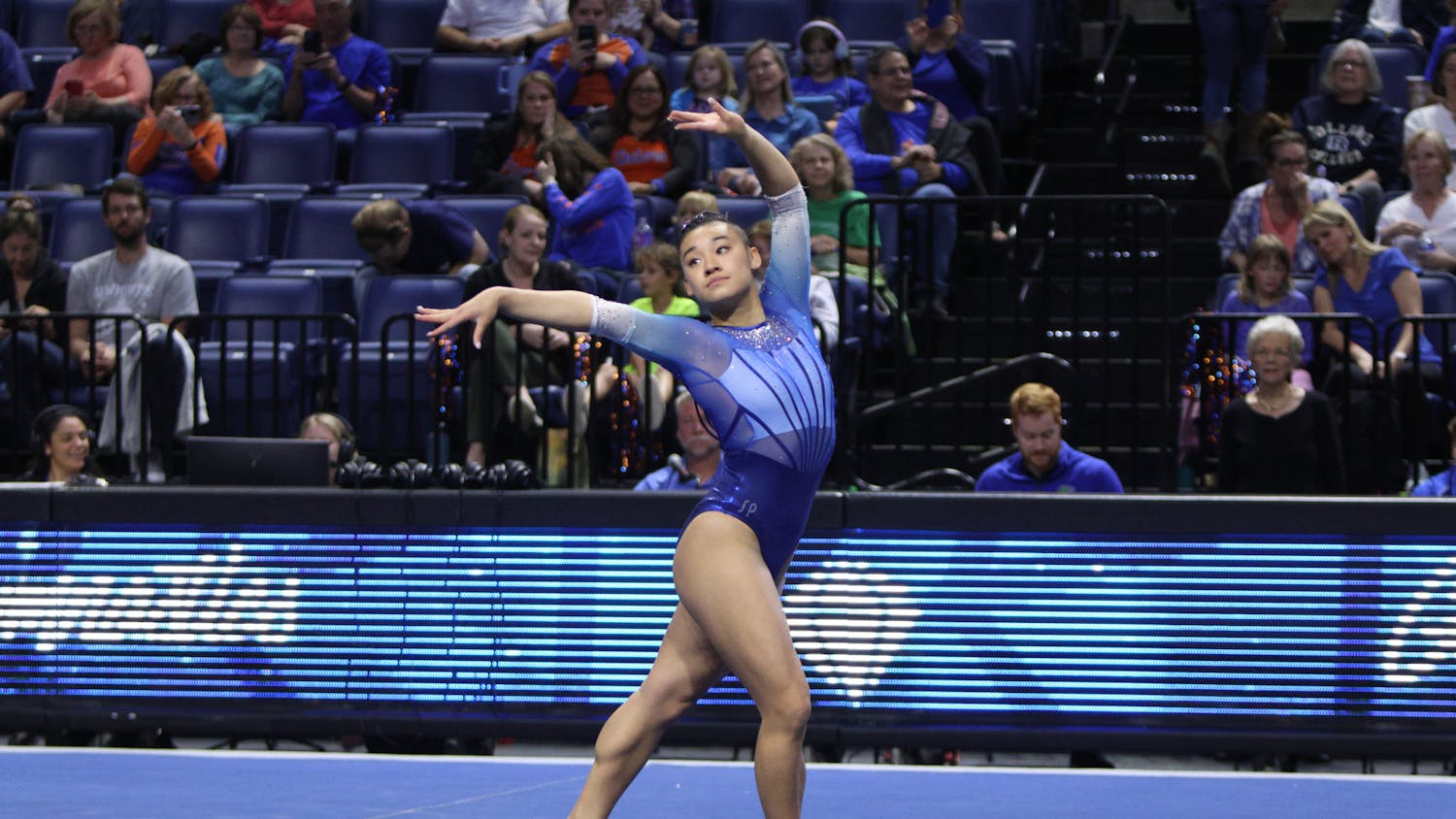
Glenn Altschuler, a self-proclaimed political junkie, emphasized Florida’s political importance to UF students over Zoom less than a week away from Election Day.
In an online event Wednesday evening called “The Presidential Election of 2020: What’s Likely to Happen -- and Why,” historian and author Glenn Altschuler explained the power of swing states and each candidate’s running platform. Altschuler applied his expertise in American history and culture to this year’s election.
The virtual event was hosted by the Bob Graham Center for Public Services and moderated by UF President Kent Fuchs. Attendance hovered around 60 and 90 people, peaking at just over 100. Altschuler was not paid for the event.
A friend of Fuchs, Altschuler has spoken at UF three times in the past five years. He is the author or co-author of 11 books, has written about 1,500 book reviews and essays and has contributed to the Wall Street Journal, the New York Times and more, according to Cornell University’s website. Altschuler is known for giving insight on political trends and things to look out for during elections.
“I’m a historian. There’s no future in it,” Altschuler said. “My ability to predict is probably no greater than anybody else’s.”
At this point, Altschuler thinks it is more likely that former Vice President Joe Biden will win by more than a small margin, making it difficult for President Donald Trump to contest the election.
Altschuler would love to watch the results come in on Election Day, but at 70 years old, he prefers to put on his pajamas and go to bed by 9 p.m. The deciding factor for his bedtime will be Florida.
Trump cannot win this election without carrying Florida, Altschuler said. Biden can lose Florida and still win if he wins Michigan, Wisconsin and Pennsylvania. It is quite likely that Biden will carry Michigan and Wisconsin, Altschuler said.
Michigan, Wisconsin, Pennsylvania and Florida are all swing states, meaning they have enough electoral votes to significantly influence a candidate’s chances of winning.
The state to watch will be Pennsylvania, he said.
Pennsylvania will take the longest to count mail-in ballots because it does not allow election officials to open ballots until Election Day, he said.
“There is a chance that we will know a lot when Florida comes in and I can go to bed in my little PJs,” Altschuler said. “There is a chance that we’ll have to wait days for Pennsylvania.”
A shift in the polls is also rather unlikely because of the partisan polarization this country has experienced, he said. Trump’s expectation to run for reelection on the back of a robust economy was severely damaged by the COVID-19 pandemic.
“American politics is more partisan than it has been at any time since the Civil War,” Altschuler said.
He cited the historic low of unemployment at less than 4%, the gross domestic profit at 3% and minority unemployment being significantly down. All of these things are “pretty good” in Altschuler’s opinion.
On Election Day, the outcome is often the hardest thing to understand, said Dorothy Zimmerman, communications director for the Graham Center. Altschuler’s experience understanding American culture lets him offer insight to students about why things happen, she said.
This will be the first presidential election many UF students participate in.
“This would be the first time they've had the chance to make their voice heard,” Zimmerman said. “That's what makes this election so special for them.”
During the Q&A portion of the event, Altschuler gave a disclaimer, saying that people shouldn’t let his projections carry too much weight.
He closed with a statement directed to the young voters in America.
“You must be well informed,” Altschuler said. “And you must remember that what you’re doing is public service.”





